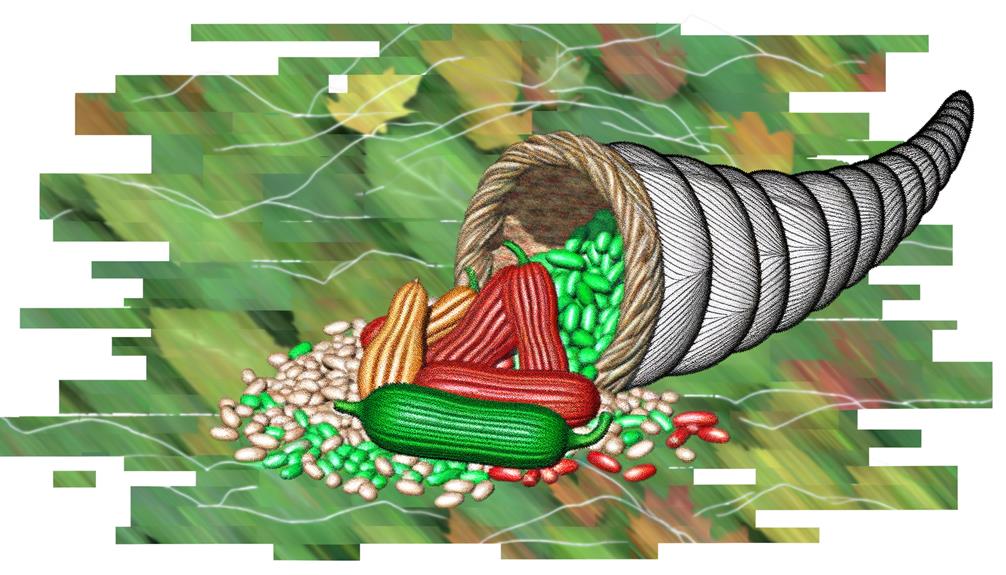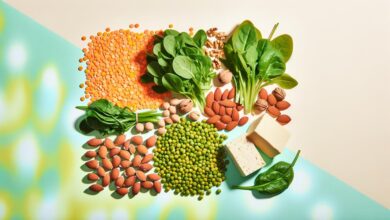Have you ever considered that the humble bean could be a powerhouse in disguise, silently waiting in the pantry to nourish your body? As you scan through your kitchen, you might not realize that legumes are not just a staple in many cultural cuisines but also a robust source of plant-based protein. They offer you a spectrum of essential nutrients, including fiber, vitamins, and minerals, with a lower environmental footprint than animal proteins. In a world where sustainable choices are becoming imperative, you're likely seeking options that are kind to the planet while catering to your health and culinary variety. Legumes, in this regard, can be an intriguing alternative, potentially shifting the paradigm of your dietary habits. The question remains, though: can they truly stand up to the traditional protein sources that dominate your plate, and what might their increased presence in your diet mean for your overall well-being and the world around you?
Key Takeaways
- Legumes are a nutritious source of plant-based protein, providing essential nutrients and aiding in digestion.
- Legumes are a sustainable and healthful alternative to animal proteins, offering options for those with dietary restrictions.
- Legumes have environmental benefits, such as nitrogen fixation and water efficiency.
- Incorporating legumes into meals can support weight management and add variety to culinary traditions.
Nutritional Profile of Legumes
Legumes, such as beans, lentils, and peas, offer a rich source of plant-based protein and an array of essential nutrients that support your overall health. They're a cornerstone in many cultural diets, appreciated not only for their versatility but also for their ability to nourish the body and the community. While providing a wealth of fiber, which aids in digestion, legumes are also packed with vitamins and minerals such as iron, zinc, and magnesium.
You might be concerned about legume allergies, which, though less common than other food allergies, can still be significant for those affected. It's vital to recognize and accommodate these needs when preparing meals for others—ensuring that everyone can enjoy the benefits of a plant-based feast without worry.
The cooking methods you choose can also impact the nutritional value of legumes. For instance, soaking and sprouting can increase nutrient availability and reduce anti-nutrients, making legumes more digestible and their benefits more accessible. Moreover, pairing legumes with grains or nuts can create a complete protein, embodying the wisdom of many traditional cuisines that have long celebrated the harmony of plant-based ingredients. By embracing these methods, you're not just cooking; you're nurturing and sustaining your community with every wholesome bite.
Legumes Versus Animal Proteins
When comparing the protein-rich legumes to traditional animal-based sources, you'll find that these plant allies offer a sustainable and healthful alternative that aligns with a mindful dietary approach. Legumes, such as beans, lentils, and chickpeas, are not only packed with protein but also bring a plethora of additional benefits that support your journey to serve others through conscious eating choices.
Considering allergy considerations, legumes are often a safer option for those who are allergic to common animal proteins like dairy or eggs. They can be easily integrated into your meals, offering a diverse array of options to those with dietary restrictions.
Let's explore some of the contrasts between legumes and animal proteins in the table below:
| Aspect | Legumes | Animal Proteins |
|---|---|---|
| Environmental Impact | Lower greenhouse emissions | Higher greenhouse emissions |
| Digestive Health | High fiber, aids digestion | Lower fiber, may impact digestion |
| Allergy Considerations | Generally lower risk | Higher risk of common allergens |
Environmental Benefits of Legumes
Recognizing the lower risk of allergies and digestive benefits you gain from legumes, it's also worth noting their positive environmental impact. These plants are champions for the earth, fostering a greener world with each harvest. By choosing legumes, you're not only nurturing your own health but also that of the planet.
Legumes offer a unique advantage in agriculture through a process called nitrogen fixation. This natural phenomenon allows them to convert atmospheric nitrogen into a form that plants can use, reducing the need for synthetic fertilizers.
- Nitrogen fixation enhances soil fertility, promoting a sustainable farming cycle.
- They require less water than animal protein sources, conserving a precious resource.
- Their deep root systems prevent soil erosion, maintaining soil health.
- Legumes can thrive in diverse climates, reducing the need for energy-intensive greenhouses.
You're serving the environment and future generations when you opt for legumes. These plants support biodiversity by creating habitats for various organisms, which is crucial for a balanced ecosystem. Embracing a plant-based diet rich in legumes is a powerful way to contribute to a sustainable future and ensure the well-being of our shared home.
Legumes for Weight Management
Turning to legumes for your dietary needs can be a smart move for managing weight effectively. These humble plants, integral to many cultural diets, offer a wealth of nutrients while also contributing to a feeling of fullness. The satiety factor of legumes is a key component in weight management. High in fiber and protein, they help you feel satisfied longer, reducing the urge to snack on less healthful options between meals.
Moreover, the low glycemic index of legumes aids in glycemic control, meaning that they help maintain stable blood sugar levels. This is crucial for avoiding the spikes and crashes that can lead to increased hunger and, consequently, overeating. By integrating legumes into your meals, you're not only honoring a tradition of plant-based nourishment but also taking a proactive step towards controlling your weight.
As someone who cares about serving others, it's important to note that recommending legumes can be a compassionate way to support those in your care on their weight management journey. Not only are they accessible and affordable, but legumes also align with a healthful and mindful approach to eating. By embracing legumes, you're choosing a path that benefits both individual health and the wider community.
Variety and Culinary Uses
Explore the vast array of legumes, each with unique flavors and textures, to diversify your plant-based culinary repertoire. As you embrace plant versatility, you'll discover legumes are more than just a protein substitute; they're a way to bring new life to your dishes. From the creamy lentils that make a perfect base for hearty stews to the firm chickpeas that star in a robust salad, the flavor profiles of legumes can match a multitude of culinary traditions and personal tastes.
To serve others with nutritious and satisfying meals, consider these culinary uses for legumes:
- Chili and Soups: Use black beans or kidney beans to add heartiness to vegan chilis and soups.
- Salads and Bowls: Toss in chickpeas or edamame for a protein boost in salads and grain bowls.
- Dips and Spreads: Blend white beans or lentils into smooth, flavorful spreads for wraps and sandwiches.
- Meat Alternatives: Mash beans or lentils to create burger patties or meatless meatballs.
Frequently Asked Questions
How Do Legumes Affect Gut Health Compared to Animal Proteins?
You'll find that legumes boost your gut's microbiome diversity through fermentation benefits, unlike animal proteins, nurturing a community within that's vital for overall well-being and serving those around you with vitality.
Can Legumes Be a Sufficient Protein Source for Athletes or Those With High Physical Demands?
Yes, legumes can meet your muscle-building needs, as they offer high protein bioavailability. Perfect for those serving through physical feats, they sustainably fuel the body with essential amino acids for recovery and growth.
Are There Any Risks of Nutrient Deficiencies When Relying Primarily on Legumes for Protein?
You may face nutrient deficiencies if you're not mindful of mineral absorption and amino acid profiles while relying on legumes for protein, especially when serving others with high nutritional needs.
How Do Legumes Interact With Common Dietary Restrictions, Such as Low-Carb or Ketogenic Diets?
You're navigating dietary restrictions, and legumes' carb content poses a puzzle. Their impact on ketosis demands attention if you're serving those on strict low-carb diets, balancing plant-based needs with metabolic goals.
What Are the Best Ways to Reduce or Eliminate Gas and Bloating Often Associated With Legume Consumption?
To reduce gas from legumes, try soaking methods overnight and experiment with fermentation techniques. These practices break down complex sugars, making them easier for you to digest and serve others comfortably.







